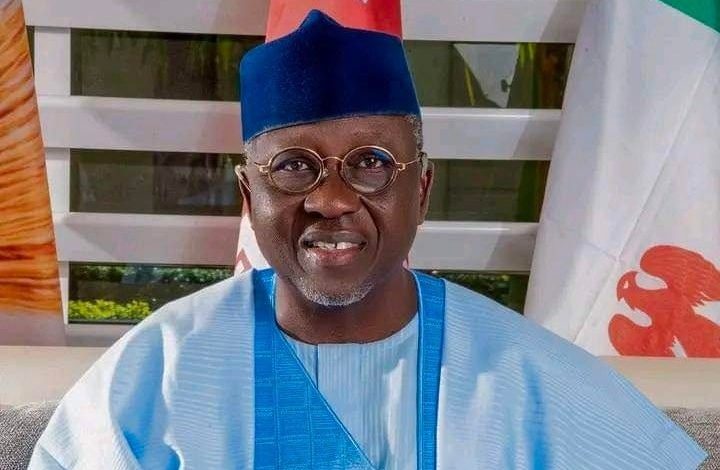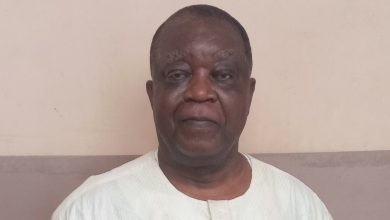‘The party has spoken’ — Al-Makura congratulates new APC chairman, promises support

Al-Makura congratulated the party leader on his emergence, describing it as a “profound reflection of the party’s collective will to usher in a new era of strategic renewal, unity, and stability.”
Al-Makura, who played a central role in the 2013 merger that gave birth to the APC, said the new leadership represents an opportunity for reconciliation, cohesion, and a return to the founding ideals of the party.
“This is not just a change in leadership, but a reaffirmation of the core values upon which the APC was founded: discipline, equity, inclusivity, and nation-first thinking,” he stated.
At a time of internal recalibration within the APC, the former senator described the decision of the NEC and the president as “a reaffirmation of institutional maturity and self-correction,” stressing that leadership changes must never be mistaken for party instability.
“Let there be no ambiguity on this matter: I am in total and unflinching support of the decision of our president and the NEC regarding your appointment,” he declared.
“The party has spoken. And as democrats and progressives, we must move forward in unison.”
Al-Makura used the opportunity to reiterate his long-standing position that unity, peace, and party cohesion must always outweigh individual ambition or sectional interest.
“The preservation of peace, unity, and cohesion within our party has always taken precedence over personal interest. I am more committed today than ever to offering my experience, guidance, and leadership wherever it is deemed useful — not for personal advancement, but for the consolidation of the gains we have made as a party and as a nation.”
Observers say Al-Makura’s public endorsement and conciliatory tone could serve as a stabilising influence in the party, especially following weeks of speculation surrounding the internal direction of the APC.
His remarks appear aimed at fostering harmony between the old guard and the new leadership, while urging other party stakeholders to embrace consensus and maturity.
“The APC is more than a political organisation. It is a symbol of democratic perseverance,” he wrote.
“It is a testament to what becomes possible when men and women across ideological divides decide to abandon bitterness and come together in pursuit of a greater national vision.”
Al-Makura’s letter also warned of the challenges that lie ahead for the party, especially as Nigeria navigates what he called “complex socio-political currents.” He urged the new APC leadership to provide not just administrative oversight, but moral clarity and unity of purpose.
“You assume this high office at a time of great opportunity — and no less, a time of great responsibility. Our country is navigating complex socio-political currents. Citizens are demanding not just good governance, but sincerity, empathy, and consistency.”
He called for the new Chairman to adopt a leadership style that embraces dialogue, rewards inclusivity, and prioritises reconciliation.
“We must recommit to the politics of healing, of strategic patience, of mature dialogue. You have my full support in pursuing a leadership style that welcomes dissent yet prioritises unity; that values experience yet embraces innovation.”
Describing himself as a “willing bridge between generations, regions, traditions and temperaments,” Al-Makura pledged to work with the new leadership to advance the founding mission of the APC and provide mentorship to younger cadres.
“I was there when compromise and dialogue forged consensus in times of seeming deadlock. And I remain here today, offering myself again as a willing bridge — committed to unity, to reason, and to Nigeria.”
He called on the new leadership to carry all members of the party along — from the ward level to the national — while returning the APC to its grassroots foundation in spirit and structure.
“The young must feel heard. The old must feel respected. And those who feel alienated must be reassured that they still have a home here.”
Al-Makura said he remains available, “not as a rival, but as a resource,” and offered his doors for consultation, mediation, and collaboration.
The elder statesman connected the unity of the APC with the broader imperative of national cohesion, warning that how the party manages its internal affairs will reflect on its capacity to govern the country effectively.
“At a time when our national fabric is tested — by economic anxiety, regional tensions, and social discontent — we, as a party, must become a force for moderation and cohesion.”
To emphasise this point, he quoted former United Nations Secretary-General Kofi Annan: “We may have different religions, different languages, different coloured skin, but we all belong to one human race.”
Al-Makura said the party must model inclusion, tolerance, and stability — not only to remain electorally viable, but to restore hope and trust in democratic leadership across the country.
“We must model what we preach,” he wrote. “We are stewards of a democratic vision entrusted to us by millions of Nigerians. We must, at all times, govern with humility and discipline.”
Concluding his message, Senator Al-Makura prayed for the success of the new APC Chairman, expressing hope that the current leadership would inspire confidence, foster reconciliation, and secure long-term electoral success — not only at the ballot box, but in the hearts and hopes of Nigerians.
“May your leadership inspire confidence, foster reconciliation, and secure victory — not only in electoral contests, but in the hearts and hopes of Nigerians everywhere,” he wrote.
The public letter, which has already begun circulating among party stalwarts and political observers, is seen as a significant gesture from a key APC figure who continues to command respect across factional lines.
As the APC enters another critical phase in its journey, voices like Al-Makura’s — steady, principled, and unifying — may prove essential in tempering internal tensions and guiding the party through its next chapter.





